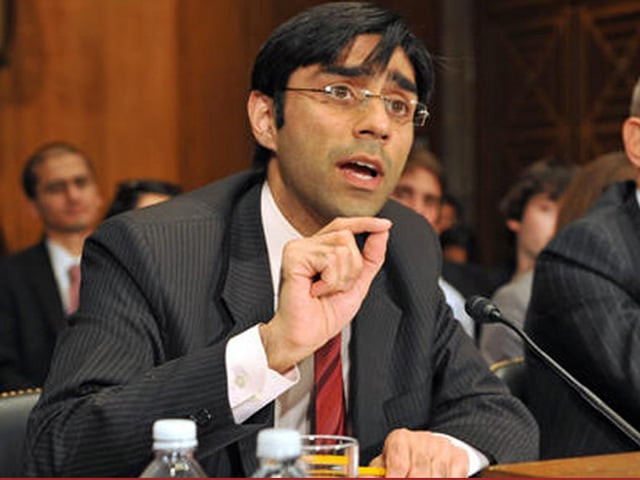Modi most fascist leader after Hitler: Moeed
NSA says govt believes in talks to address all internal, external threats

National Security Adviser Dr Moeed Yusuf has said consensus on the Kashmir issue was imperative to safeguard the country’s supreme national interest.
In an interview with a private TV news channel, the NSA maintained that the government believed in consensus and dialogue to address all the internal and external threats being faced by the country.
Commenting on the Pakistan-India relations, Dr Yusuf regretted that Indian Prime Minister Narendra Modi had appeared as the most fascist leader in the world after Adolf Hitler.
The NSA also expressed serious concerns over the massive human rights violations, brutalities and atrocities being committed by Indian troops against innocent Kashmiris in the Indian-Illegally Occupied Jammu and Kashmir (IIOJK).
Read: No decision on amnesty for TTP: Moeed Yusuf
Talking about the prevailing situation in Afghanistan, he warned that Pakistan would not allow the new Taliban government to use the neighbouring county’s soil against any other state.
He added that the unrest in Afghanistan would have its effect on Pakistan.
“A peaceful Afghanistan is in the best interest of the entire region.”
On Pak-US relationships, he reaffirmed Islamabad's commitment of friendly relations with Washington as both the countries shared common interests in various areas.
On Friday while talking to a private TV channel, the NSA had disagreed with Information Minister Fawad Chaudhry's earlier statement on the government's talks with the Tehreek-e-Labbaik Pakistan (TLP) in which he had said that neither the State nor the government was ready to fight extremism.
"I do not agree at all that the State does not have the capability to deal [with TLP]," Dr Yusuf had remarked responding to Chaudhry's earlier statement.
"I had also said this publicly that a red line has to be drawn because the policemen martyred [during clashes with TLP] were also the State's responsibility.”
Dr Yusuf had claimed that a National Security Committee (NSC) meeting was held to discuss the TLP issue by all relevant stakeholders.
He had said that after the meeting, the government released a statement stressing that "a red line has been drawn" but added that it also said it would prefer to resolve the matter through talks.
"After that, the matter progressed through talks.”
He had cited the example of the Lal Masjid episode, saying that the media at the time had called upon the State to use force as its writ was being challenged right in the heart of the capital.
"And when the State used force, all of you [the media] stood against the government.”
Fawad had spoken at length about the state of extremism in Pakistan and how the State should deal with it.
During a public event on Thursday, the minister had said schools and colleges were the main reason, rather than madrassas, that extremism had spread in Pakistan.
"In the 90s, teachers were appointed to preach extremism," the information minister had said, while addressing the launching ceremony of “Charter of Peace”, organised by Pakistan Institute of Peace Studies.



















COMMENTS
Comments are moderated and generally will be posted if they are on-topic and not abusive.
For more information, please see our Comments FAQ